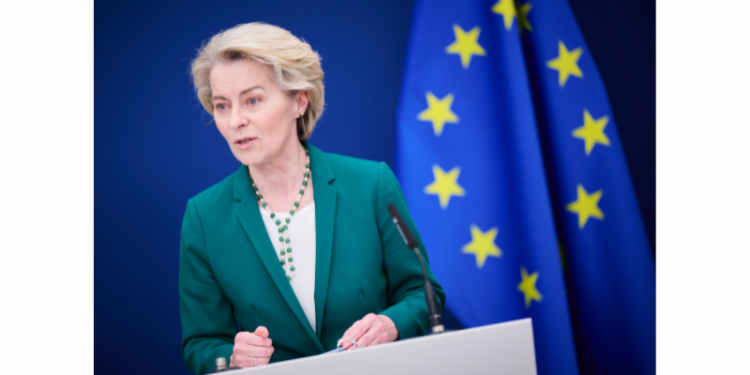
The future of independent editorial media and journalism in Europe is at a critical juncture. The dominance of primarily American Very Large Online Platforms (VLOPs), which now capture over 80% of digital advertising revenue, threatens the sustainability of the media sector. These platforms increasingly exploit journalistic content through generative AI technologies without fair remuneration, further eroding the economic viability of quality journalism. As discussions about the post-2027 Multiannual Financial Framework (MFF) have started, the European Federation of Journalists (EFJ) calls for robust and secure funding for independent journalism in the next EU’s long-term budget.
Journalists face mounting internal and external challenges: growing news avoidance, political and economic media capture, and deteriorating working conditions. A wave of research suggests that high quality journalism not only remains effective amidst rising tides of misinformation but that fact checking and journalism can effectively counter mis- and disinformation as well. The EFJ has been advocating for many years for a healthy mix of different funding streams including public funding at arms’ length for journalism as a public good.
As the OSCE Representative on Freedom of the Media rightly emphasises, there can be no security without media freedom. Journalism is one of the most powerful tools in the fight against disinformation, but to remain effective, it requires robust, targeted support.
A Structural Funding Gap at EU Level
Current EU funding for journalism primarily targets news media organisations without guaranteeing benefits for journalists themselves, particularly in the areas of training, upskilling, and resources. Funding must be conditional upon fair labour practices and journalistic integrity and ethics as the EU should not give funding to irresponsible media organisations.
Public-sector skills funding disproportionately supports professionals in film production, leaving journalists underserved. Furthermore, freelance journalists – often the most vulnerable – face systemic barriers to accessing training and institutional support.
There is an urgent case for robust and secure funding to shore up Europe’s media landscape and democratic resilience in an environment of increased threats to democracy, freedom of expression, and media pluralism and media freedom globally. In Europe, the sector has also been struggling financially for some time; exacerbated by the tracking ads industry favouring Very Large Online Platforms and having led to an estimated 50-70 percent decrease in advertising revenues.
The U.S. funding freeze impact on the EU media landscape has been severe. But what it has revealed is the over reliance on US government funding for a myriad of activities to promote democratic resilience, independent media and media pluralism across the EU, especially in Central and Eastern Europe. The US government’s Central Europe Program provided $35 million in grants for civil society, media, rule of law and civic engagement in Bulgaria, Czech Republic, Hungary, Poland, Romania, Slovakia and Slovenia.
To put it into perspective, the current Multiannual Financial Framework (MFF) includes €1.42 billion for the media strand of the Creative Europe programme for 2021-2027. Meanwhile, Russia spent the same amount on media in 2021 alone. Research shows that 94 projects focused on journalism received a total of €295.1 million in funding between 2018 and 2024, from various EU funds and bodies, such as DG Connect and DG RTD.
This lack of structural support undermines the sustainability of journalism as a profession and threatens the very foundation of public-interest reporting. To effectively support independent journalism, the EU must maintain and expand its holistic strategy, focusing on seven priority areas:
-
- Effective Enforcement of Media Regulations
- Journalist Safety and Legal Support
- Promoting Sustainable Media Models
- Support for Digital Innovation and Start-Ups
- Financial support for professional training and upskilling for journalists
- Ethical Journalism and the Fight Against Disinformation
- Capacity Building for Journalists’ Organisations
The source: EFJ
Photo by: European Union, 2025